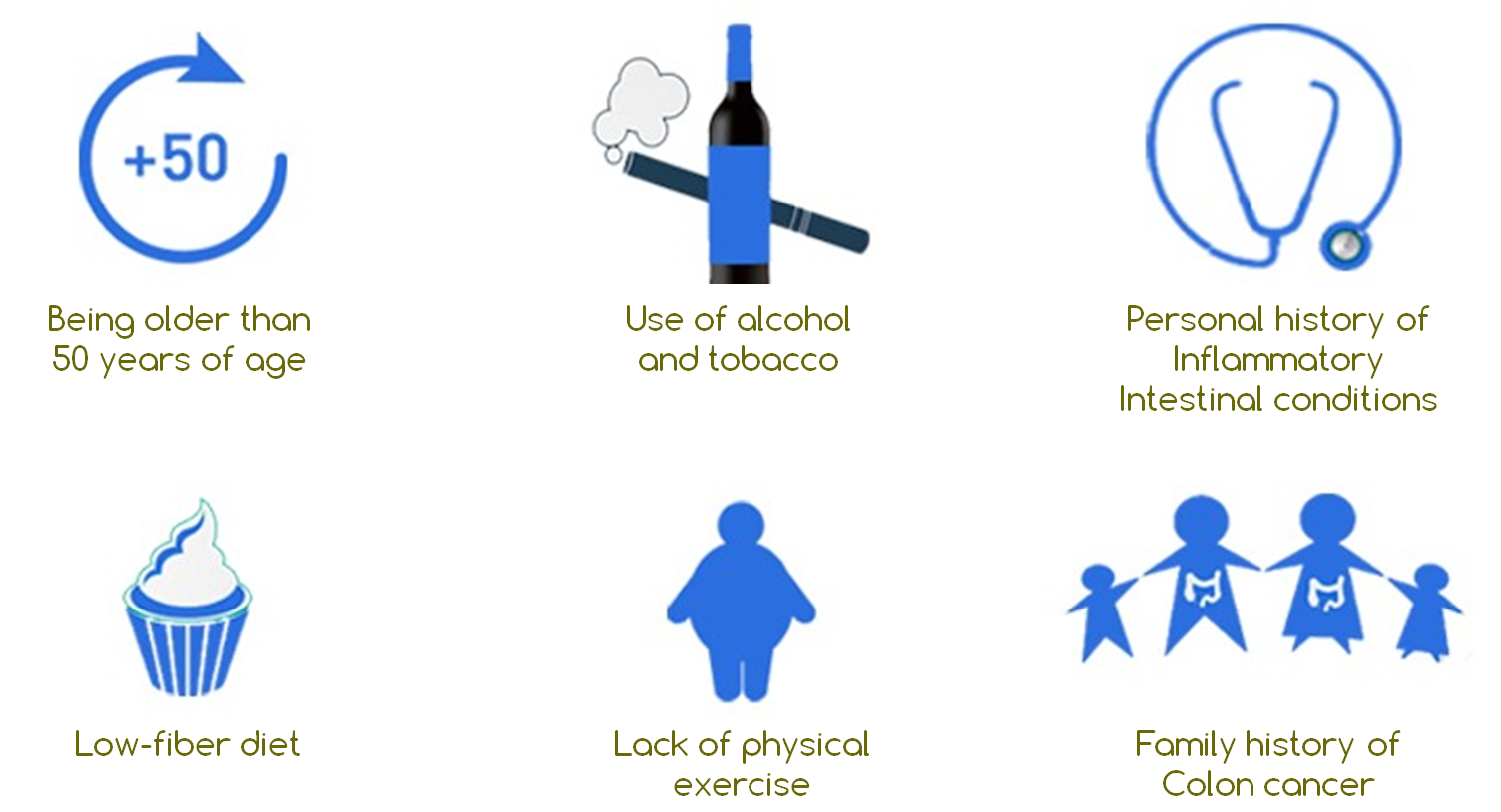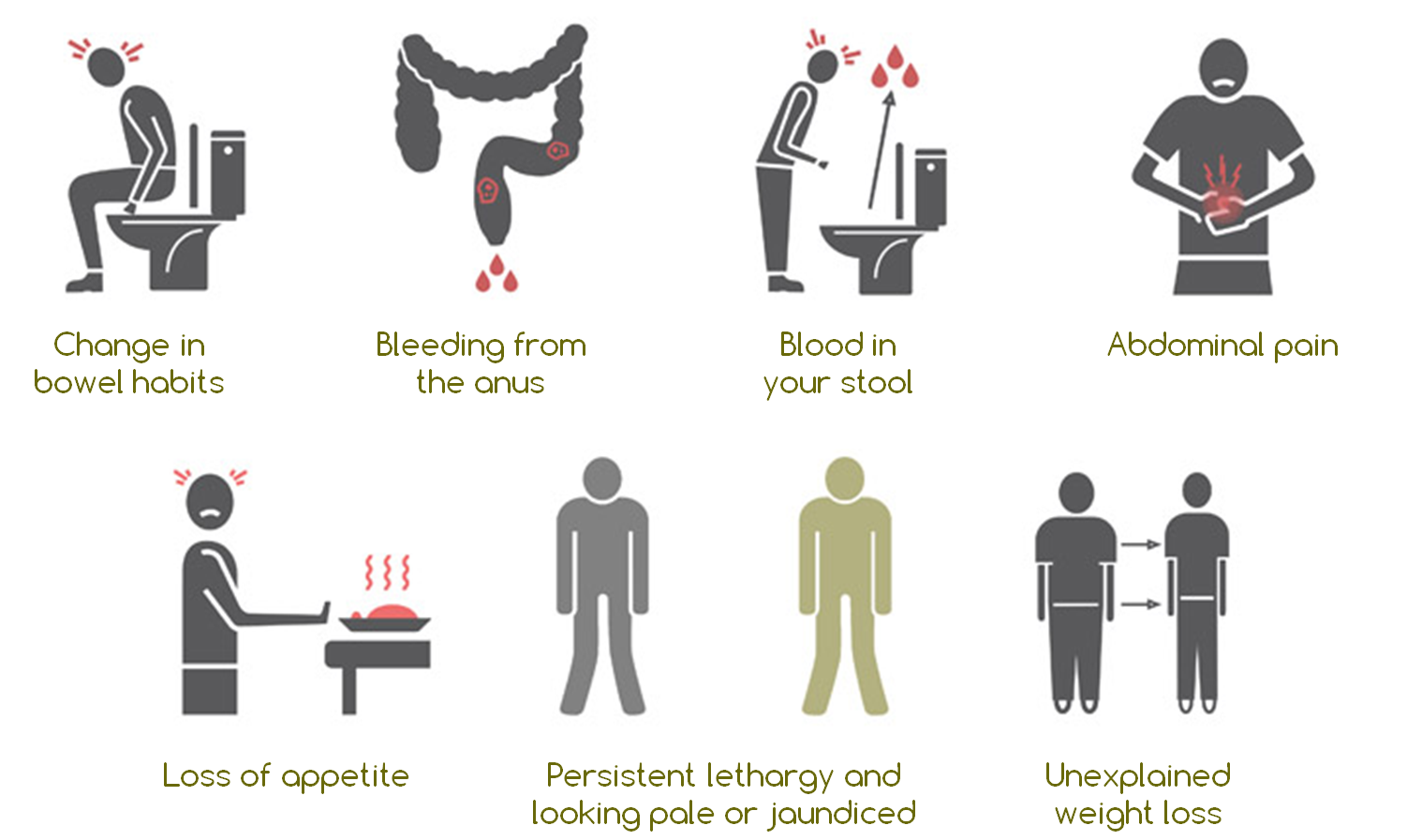Colorectal cancer
. Colorectal cancer (CRC) is the third most common cancer diagnosis in worldwide, with 1 850 000 new cases and 462 000 deaths in 2018 (Globocan 2018).
. CRC is curable when detected at the early stage.
. Colonoscopy is the gold standard for detection of small and premalignant lesions.
. In many countries, CRC screening with fecal immunochemical test (FIT) is established, typically inviting 50-74 year-olds biennially.
Colorectal cancer incidence and mortality statistics worldwide in 2018
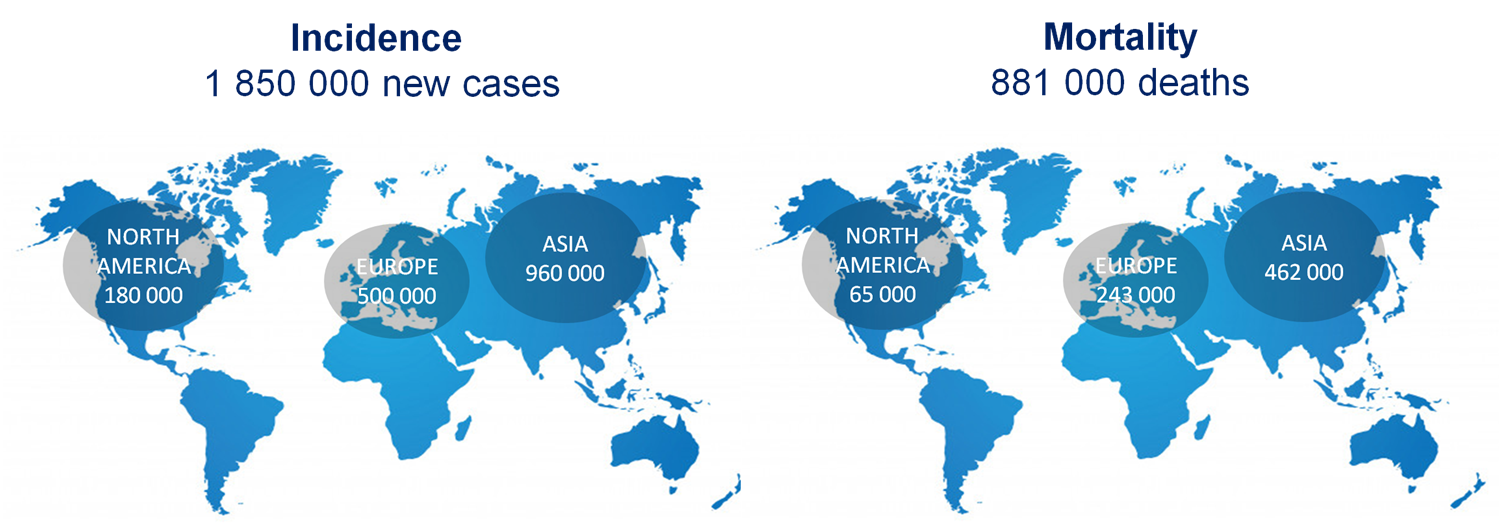
R isk factors
isk factors
Symptoms
How is colorectal cancer diagnosed?
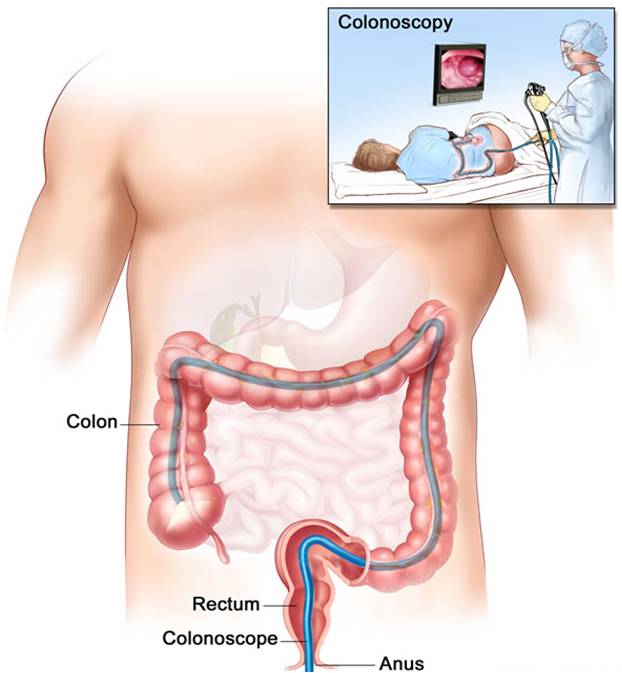 Colonoscopy
Colonoscopy
. A colonoscopy is an invasive exam and uncomfortable.
. It is used to detect changes or abnormalities in the large intestine(colon) and rectum.
. During a colonoscopy, a long flexible tube (colonoscope) is inserted into the rectum. A tiny video camera at the tip of the tube allows the doctor to view the inside of the entire colon.
. If necessary, polyps or others types of abnormal tissue (biopsies) can be removed through the scope during a colonoscopy.
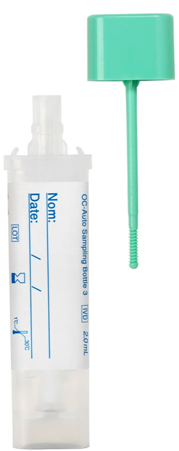 Fecal occult blood test (FIT)
Fecal occult blood test (FIT)
. FIT is a stool test designed to identify possible signs of bowel disease.
. It detects minute amounts of blood in feces (fecal occult blood).
. If there is blood in the stool this can indicate the presence of abnormalities in the bowel.
. Patients with a positive FIT result are referred for further investigation by colonoscopy.
 Colonoscopy
Colonoscopy
. A colonoscopy is an invasive exam and uncomfortable.
. It is used to detect changes or abnormalities in the large intestine(colon) and rectum.
. During a colonoscopy, a long flexible tube (colonoscope) is inserted into the rectum. A tiny video camera at the tip of the tube allows the doctor to view the inside of the entire colon.
. If necessary, polyps or others types of abnormal tissue (biopsies) can be removed through the scope during a colonoscopy.
 Fecal occult blood test (FIT)
Fecal occult blood test (FIT)
. FIT is a stool test designed to identify possible signs of bowel disease.
. It detects minute amounts of blood in feces (fecal occult blood).
. If there is blood in the stool this can indicate the presence of abnormalities in the bowel.
. Patients with a positive FIT result are referred for further investigation by colonoscopy.
 Fecal occult blood test (FIT)
Fecal occult blood test (FIT)
. FIT is a stool test designed to identify possible signs of bowel disease.
. It detects minute amounts of blood in feces (fecal occult blood).
. If there is blood in the stool this can indicate the presence of abnormalities in the bowel.
. Patients with a positive FIT result are referred for further investigation by colonoscopy.

